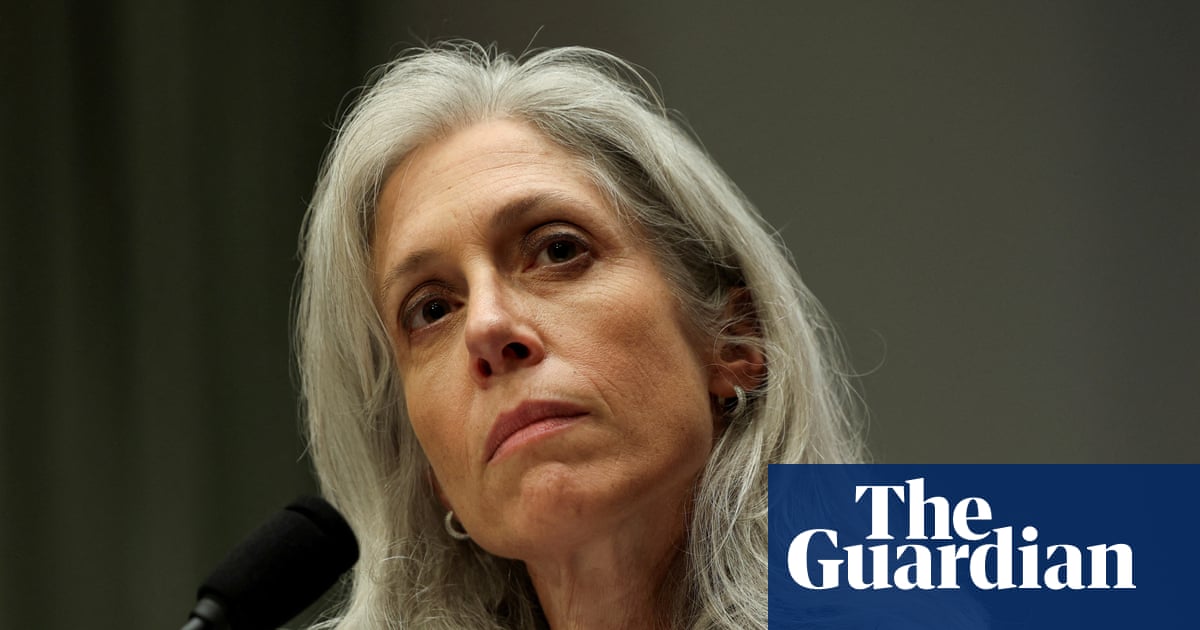CDC in Turmoil: The Ousting of Susan Monarez
In an unprecedented turn of events, the U.S. Centers for Disease Control and Prevention (CDC) spiraled into chaos on Wednesday following the abrupt removal of its newly appointed director, Susan Monarez. Just weeks into her tenure, Monarez found herself at the center of a political storm as the Trump administration acted decisively to oust her, citing what some experts are calling a dangerous shift in public health policy.
The Sudden Dismissal
Monarez, who was confirmed by the Senate less than a month prior, was dismissed without any explicit justification from the Department of Health and Human Services (HHS). In a terse statement circulated on social media, HHS announced, “Susan Monarez is no longer director of the Centers for Disease Control and Prevention. We thank her for her dedicated service to the American people.”
Her removal has stirred significant controversy, particularly around her commitment to a science-based approach to public health, which allegedly clashed with the priorities set by Robert F. Kennedy Jr., the U.S. Health Secretary. Reports suggest that Monarez faced backlash after declining to endorse radical changes to vaccine policies—changes that many health professionals deem reckless.
Confusion and Resistance
In the aftermath of her dismissal, confusion reigned. Monarez’s lawyers, Mark Zaid and Abbe David Lowell, issued statements asserting that she had neither resigned nor been formally notified of her firing. They emphasized Monarez’s commitment to science and integrity, claiming she had been “targeted” for resisting political interference in health policy. “When CDC Director Susan Monarez refused to rubber-stamp unscientific, reckless directives… she chose protecting the public over serving a political agenda,” her lawyers declared, signaling their intent to assert Monarez’s position amid the chaos.
The White House later suggested that her refusal to resign effectively led to her termination. However, the ambiguity surrounding the process raised eyebrows, as only the president can officially fire a Senate-confirmed official. Some critics noted the lack of a direct statement from Trump, further complicating the narrative.
A Ripple of Resignations
Monarez’s ousting acted as a catalyst for broader unrest within the CDC. Following the announcement, at least three prominent CDC officials announced their resignations in protest. Dr. Demetre Daskalakis, the director of the National Center for Immunization and Respiratory Diseases, expressed his deep distress over the politicization of public health in his resignation letter. He acknowledged the talent of his colleagues but lamented the "dark cloud" hanging over the agency.
Echoing Daskalakis’s concerns, Dr. Deb Houry, the chief medical officer, articulated her fears regarding the potential censorship of scientific findings. “For the good of the nation and the world, the science at CDC should never be censored or subject to political pauses or interpretations,” she wrote, highlighting the urgent need for Independence in public health policymaking.
Another key resignation came from Daniel Jernigan, who had led the Center for Emerging Zoonotic Infectious Diseases, intensifying fears about the agency’s operational stability.
The Role of the FDA and Vaccine Policy
Compounding the turmoil within the CDC, Secretary Kennedy recently celebrated FDA rulings that retract the emergency use authorization for COVID-19 vaccines developed by Pfizer, Moderna, and Novavax. With these vaccines believed to have saved millions of lives, critics—aided by CDC experts—are concerned that the new policy significantly restricts vaccination options, potentially leaving vulnerable populations at risk.
Vaccines will now only be authorized for individuals aged 65 and over, or those with specific underlying health conditions. Moreover, access to these vaccines will depend on a reshaped advisory panel filled with opponents of COVID vaccination, raising further questions about the future of public health initiatives.
Voices of Concern from Health Experts
The fallout from Monarez’s dismissal prompted alarm among public health experts. Dr. Craig Spencer, an emergency medicine physician, stressed that the developments should concern all Americans, regardless of their political leanings. He denounced the chaotic situation, underscoring its potential implications for national health readiness.
Dr. Jonathan Reiner noted that Kennedy could be becoming a liability for the White House, hinting at the broader implications of these decisions for the Trump administration’s credibility. Dr. Ashish Jha, the Biden administration’s response coordinator for COVID-19, described the circumstances as “total implosion,” highlighting the mass oversight issues at the CDC.
Historical Context
Monarez made history as the agency’s 21st director and the first to successfully navigate Senate confirmation following a recent legislative change. Her tenure, however, has now been formally recognized as the shortest in the CDC’s nearly 80-year history, casting a shadow over the agency’s future leadership and stability.
As the public health community grapples with the fallout, the issues laid bare during this tumultuous period underscore the pressing need for transparency and integrity in health policy-making, especially during a time when public trust in health institutions is paramount.



